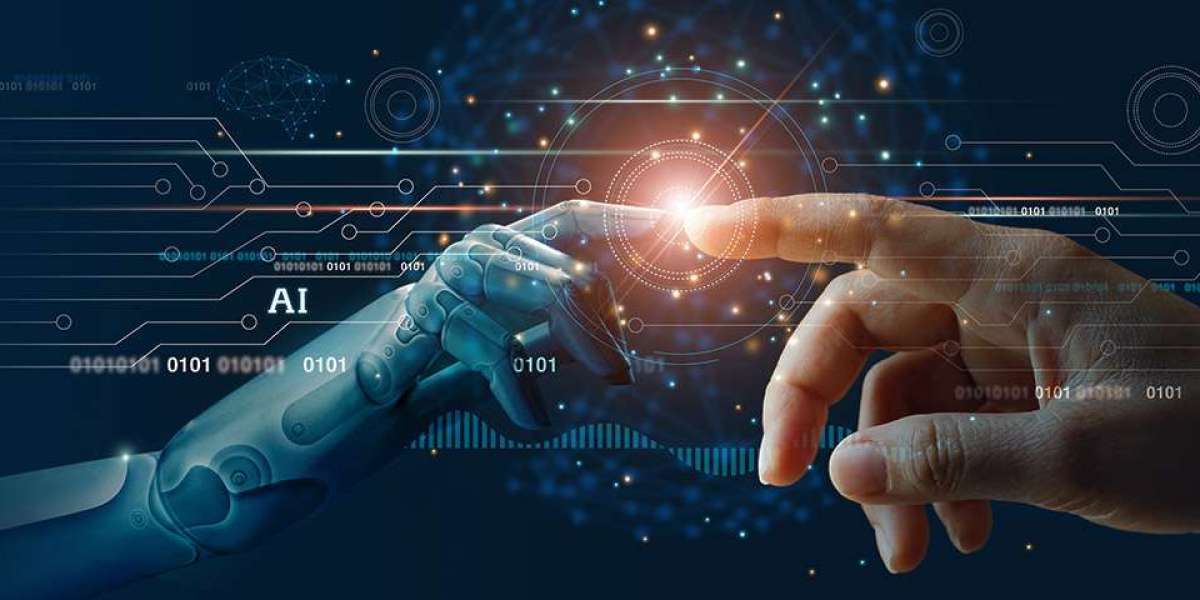The Rise of Artificial Intelligence: A Technological Revolution
Artificial Intelligence (AI) has been at the forefront of technological advancements, rapidly evolving from a futuristic concept to an integral part of our daily lives. This technological revolution is transforming industries, reshaping the workforce, and redefining the way we interact with the world. From voice assistants to autonomous vehicles, AI is driving a wave of innovation that is changing the very fabric of society.
The Evolution of AI: From Concept to Reality
The origins of AI can be traced back to the mid-20th century when mathematicians and computer scientists first conceptualized the idea of machines performing tasks that typically required human intelligence. Early AI research focused on simple problem-solving and symbolic reasoning. Over the years, with the advent of powerful computing systems, larger datasets, and advanced algorithms, AI has evolved into a sophisticated tool capable of mimicking human cognitive functions like learning, decision-making, and even creativity.
Key milestones in AI development include the creation of expert systems in the 1980s, the emergence of machine learning in the 1990s, and the breakthrough of deep learning techniques in the 2010s. Deep learning, in particular, has enabled machines to process vast amounts of data, recognize patterns, and perform complex tasks such as natural language processing and image recognition.
AI in Our Everyday Lives
AI is no longer a distant dream confined to laboratories. It is already embedded in many aspects of our daily existence. Take, for instance, the widespread use of AI-powered voice assistants like Siri, Alexa, and Google Assistant. These systems rely on natural language processing and machine learning to understand and respond to user queries, creating a seamless interaction between humans and machines.
In healthcare, AI is being used to diagnose diseases more accurately, predict patient outcomes, and personalize treatment plans. For example, AI algorithms can analyze medical images, such as X-rays and MRIs, to detect abnormalities with remarkable precision. In finance, AI is helping institutions detect fraudulent transactions, optimize trading strategies, and provide personalized financial advice.
Moreover, autonomous vehicles, one of the most talked-about AI innovations, are making significant strides. Companies like Tesla, Waymo, and others are harnessing AI to develop self-driving cars, which have the potential to revolutionize transportation, reduce accidents, and enhance mobility for those unable to drive.
The Impact on Industries
Industries across the board are witnessing profound changes as AI becomes more sophisticated. In manufacturing, AI-driven automation and robotics are streamlining production processes, reducing costs, and increasing efficiency. Smart factories, powered by AI and the Internet of Things (IoT), can now monitor equipment in real-time, predict maintenance needs, and optimize workflows.
The retail industry is also undergoing a transformation. E-commerce platforms leverage AI to provide personalized shopping experiences, from recommending products to predicting customer preferences. AI-powered chatbots are improving customer service by handling routine inquiries, while advanced data analytics tools are helping businesses make informed decisions.
In the creative sector, AI is playing a unique role. Artists, musicians, and filmmakers are experimenting with AI-generated content, challenging traditional notions of creativity. For example, AI can compose music, generate artwork, and even write scripts. While this has sparked debates about the role of human creativity, it also opens up new possibilities for collaboration between humans and machines.
Challenges and Ethical Considerations
Despite its many benefits, the rise of AI has not been without controversy. One of the primary concerns is the potential impact on jobs. As AI-driven automation becomes more prevalent, there are fears that certain roles traditionally performed by humans could be displaced. Jobs in industries such as manufacturing, customer service, and logistics are particularly vulnerable to automation.
To address this, experts argue that the workforce will need to adapt through reskilling and upskilling initiatives. While AI may eliminate some jobs, it also has the potential to create new ones in fields such as AI development, data analysis, and AI ethics. see more
AI also raises important ethical considerations. The use of AI in decision-making processes, such as hiring, lending, or law enforcement, has been criticized for potential biases. AI systems are only as good as the data they are trained on, and if that data contains biases, the AI’s decisions may reflect them. Ensuring fairness, transparency, and accountability in AI systems is crucial to prevent unintended consequences.
Furthermore, the development of AI poses questions about privacy. AI systems collect and analyze vast amounts of personal data, raising concerns about how that data is used and protected. Governments and organizations are grappling with how to regulate AI to safeguard individual rights while encouraging innovation.
The Future of AI: A New Era of Innovation
The rise of AI represents a technological revolution that is only just beginning. As AI continues to advance, we can expect even more groundbreaking developments in areas such as quantum computing, natural language understanding, and general AI, which could eventually lead to machines with human-like cognitive abilities.
AI’s potential to solve some of the world’s most pressing challenges, from climate change to healthcare disparities, is immense. However, realizing this potential requires careful consideration of the ethical, social, and economic implications.
In the coming years, AI will likely become even more integrated into our lives, reshaping industries and society as a whole. As we stand on the cusp of this new era of innovation, it is essential to ensure that AI serves as a force for good, time business now driving progress while upholding the values of fairness, transparency, and inclusivity.
The rise of artificial intelligence marks the beginning of a technological revolution that promises to shape the future in ways we are only beginning to imagine. The challenge now lies in how we navigate this transformation responsibly and harness AI's potential to benefit all of humanity.



